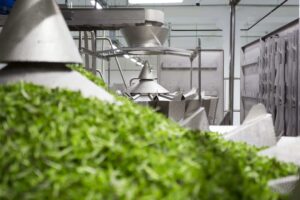The recently released Corporate Sustainability Reporting Directive (CSRD) legislation has not just thrown a rock into the sustainability pond, it’s thrown an entire quarry. Recent research from the consultancy SB+CO highlighted some of the teething issues the CSRD is experiencing as sustainability teams grapple with the scale, scope, and complexity of the new requirements. These quotes from sustainability officers they interviewed show the depth of anger and confusion amongst practitioners:
- How can it be possible that we have to be ready for this in just one year from now?
- You’re honestly telling me we have to disclose more than a thousand data points?
- I thought my role was helping to redefine the strategy for the business. Now it seems as if the only focus is on compliance.
- Reporting never changed the world, and we cannot have it be the tail [that] wags the dog.
- Is this the most effective way for us to spend money on sustainability? No, obviously not.
- It’s a feeding frenzy. (for consultants)
Congratulations to SB+CO for a very useful contribution to the debate. The research suggests that the CSRD is an ambitious and far-reaching sustainability program that is suffering from significant glitches in design and implementation. This aligns with my own experience interacting with our client sustainability teams. Discussing climate risk reporting with one corporate sustainability leader recently, their first words were eloquent if not elegant: “Who the f**k came up with that bullsh*t.” No one disagrees that we have significant issues to address and that something like the CSRD is needed. No one doubts that the climate crisis is upon us. The challenge is how to address this while keeping the reporting burden on businesses to a tolerable level, focused on genuinely material issues, and without focusing unduly on reporting over action
The report goes on to propose a number of ways in which the reporting framework can be made more practical, addressing materiality assessments, assurance processes, and communication.
While it’s true that reporting does not in itself change anything, it’s an essential step in understanding current conditions, setting targets and transparently measuring progress. While the CSRD has a focus on reporting, the companion legislation, the Corporate Sustainability Due Diligence Directive (CSDDD), which was adopted by the European Parliament in April 2024, has a greater focus on requiring companies to act, with requirements such as transition plans and mitigation strategies. EU member states now have two years to transpose the CSDDD into national legislation.
Benchmark Gensuite Solution
Benchmark Gensuite has been working with a number of subscriber companies to develop a robust digital CSRD reporting capability. Some of the most challenging issues that companies are facing include data quality, assurance processes, scope 3 GHG emissions reporting, and supply chain engagement. Biodiversity is a challenge that has barely registered with some companies.
With the CSRD reporting framework (ESRS) embedded in the Benchmark Gensuite platform, we provide a comprehensive and integrated capability to address key issues our subscribers are facing.
Download our guide, “Navigating the CSRD: Best Practices and Strategic Opportunities” for practical steps to take action.
Data Quality
The integrity of CSRD reports hinges on the quality of underlying data. Benchmark Gensuite provides a centralized platform where all relevant information can be collected consistently across different business units and geographical locations. The software includes validation rules that help prevent errors during data entry and ensure consistency in reporting metrics. Data capture is automated wherever possible. Additionally, it supports audit trails for transparency and traceability of reported information—key elements in maintaining high-quality data standards. We use AI assistants to suggest responses, and check for gaps or inadequate responses. This focus on data quality also minimizes the audit burden, allowing auditors to quickly and clearly confirm the validity of the data.
Assurance Processes
The assurance required by CSRD has not yet been definitively defined, leaving even audit firms with grey areas to address. We can make reasonable assumptions however about what is likely to be required, and Benchmark Gensuite can provide tools to make the process more efficient and less time-consuming. The integrated platform provides a clear audit trail that enables the auditor to easily check the provenance of any data point, and any transformation that has been undertaken. It provides a secure document repository with access control, audit check lists, and tools to record non-conformance findings, and drive corrective actions to completion. The analytics capability allows users to identify likely errors or non-conformance, and to generate reports to provide to third-party auditors.
Scope 3 GHG Emissions Reporting:
We have been working with subscribers to develop Scope 3 measurement methodologies. We have used AI to process the enormous volume of data required, and helped identify hot-spots in the supply chain. By automating data collection and calculations, using accepted methodologies and conversion factors, we enable companies to generate accurate and reliable emission reports.
Supply Chain Engagement
Engaging with suppliers is critical for accurate Scope 3 reporting and overall sustainability performance. Benchmark Gensuite’s supplier portal facilitates this engagement by allowing suppliers to directly input their operational data into the system. This feature not only streamlines data collection but also encourages suppliers to take ownership of their environmental impact. Furthermore, Benchmark Gensuite can be used to assess supplier performance against sustainability criteria, enabling companies to make informed decisions about procurement strategies that align with their sustainability objectives.
Biodiversity
Biodiversity feels like the elephant in the room no one is talking about. It’s a critically important sustainability issue, and one that many companies have barely begun to address. The requirements of the CSRD in respect to biodiversity are significant, companies must report
- to what extent it contributes to the respect of global environmental limits,
- dependencies and the positive and negative impacts on biodiversity and ecosystems,
- its past, current and future measures to protect them,
- consequences for its financial situation and performance and
- plans to adapt its business model for the preservation and restoration of biodiversity and ecosystems globally.
Benchmark Gensuite provides a range of tools to manage biodiversity, such as incident tracking for biodiversity-related events (e.g., spills or habitat disturbances), mapping capabilities for spatial analysis related to land use planning, and nature-related risks and constraints, and reporting frameworks with biodiversity requirements and guidance embedded (ESRS, CDP). This is a new and rapidly evolving space, we will continue to work in partnership with our subscribing community to provide the tools they need.
In these early days of CSRD implementation, Benchmark Gensuite is focused on providing the foundation elements of a strong reporting capability. We collaborate with our subscribing community to address the key challenges they face as they grapple with the new requirements: data quality, assurance processes, Scope 3 GHG emissions, supply chain engagement, and biodiversity. Get the basics in place, the rest can be built out over time. Our philosophy is to maximize business value by leveraging regulatory compliance obligations to generate insight and drive continuous operational improvement.
This may be something of a midlife crisis for sustainability practitioners, but as always the opposite side of the coin in any crisis is opportunity. Some people use their midlife crisis to create their new future. Companies that make the most of available technology, including emerging AI capabilities, to manage complexities and focus on operational performance will be able to extract real business value from the requirements of the CSRD.





